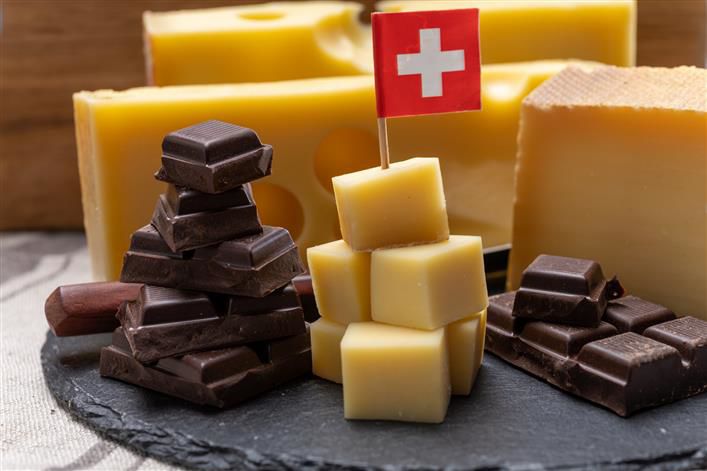India’s trade pact with 4-European nation Bloc set to introduce Swiss watches and chocolates to Indian market

India and the 4-European nation bloc EFTA signed a trade and economic partnership agreement (TEPA) on Sunday, marking a significant step towards enhancing trade and investments between the regions.
The deal is expected to facilitate Indian access to high-quality Swiss products like watches, chocolates, biscuits, and clocks at reduced prices, while India will phase out customs duties on these goods under the agreement with the European Free Trade Association (EFTA), comprising Iceland, Liechtenstein, Norway, and Switzerland.
The pact, known as the India-EFTA Trade and Economic Partnership Agreement (TEPA), will take up to a year to implement due to the elaborate ratification process in different countries.
Union Minister of Commerce and Industry Piyush Goyal highlighted the “fair, equitable, and mutually beneficial” nature of the agreement, emphasizing the potential for massive trade and investment opportunities for both sides.
The TEPA is anticipated to boost India’s exports in pharmaceuticals, garments, chemicals, and machinery, while attracting investments in sectors like automobiles, food processing, railways, and the financial industry.
India is the EFTA’s fifth-largest trading partner, with total two-way trade reaching USD 25 billion in 2023, making it significant after the EU, the US, Britain, and China. The pact includes a foreign direct investment commitment of USD 100 billion for 15 years from the EFTA bloc.
Notably, the investment commitment includes USD 50 billion for the first ten years after the agreement’s implementation and an additional USD 50 billion over the subsequent five years from the member countries of the EFTA bloc. This investment is expected to generate 1 million direct employment opportunities in India.
The TEPA allows India to access high-quality Swiss products at lower prices by gradually removing tariffs on many Swiss goods over seven to ten years.
Key categories include seafood, fruits, coffee capsules, oils, sweets, processed foods, smartphones, bicycle parts, medical equipment, clocks, watches, medicines, textiles, apparel, iron and steel products, and machinery equipment. Tariffs on cut and polished diamonds will be reduced from 5 percent to 2.5 percent in five years, while no effective tariff concessions are offered on gold.
The trade relationship between India and EFTA is crucial, with Switzerland being India’s largest trading partner, followed by Norway. Switzerland, renowned for its innovation, holds the top position in the Global Innovation Index.
The bilateral trade between India and Switzerland stood at USD 17.14 billion in the last fiscal, with India’s trade deficit reaching USD 14.45 billion in 2022-23. Major exports from India to Switzerland include chemicals, gems and jewelry, ships and boats, machinery, textiles, and apparel. Switzerland is also a significant source of gold imports for India.
You might also be interested in – Greek PM Visits Bharat after 16 years, meets PM Modi to double bilateral trade by 2030


